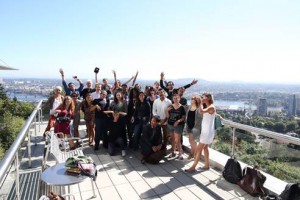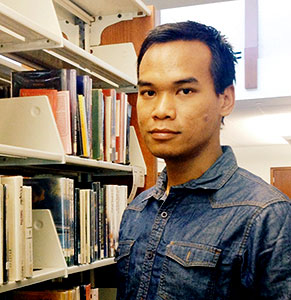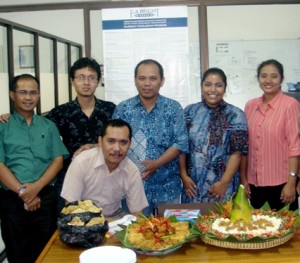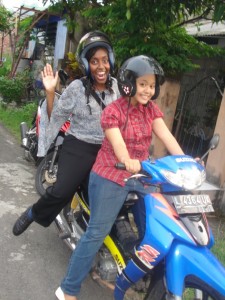
Members of the 2014 Fulbright-Millennial Train group at the top of Oregon Health & Science University’s Portland Aerial Tram with Portland’s First Lady, Nancy Hales (left)
Our Fulbright-MTP participants made it safely to Portland for today’s launch of the MTP 2014 journey. They depart at 4:00 p.m. PDT (7:00 p.m. EDT) today and head first to Seattle, WA. Here, Fulbright Student from Indonesia, Alyas Widita, talks about arriving in Portland.
It felt like the flight from Minneapolis to Portland was the longest flight I had ever taken. The flight only took about three and a half hours, but the excitement of participating in this year’s Fulbright-Millennial Trains Project (MTP) made me impatient to arrive in Portland and meet with my MTP colleagues. Additionally, the fact that I sat in an aisle seat prevented me from being able to see the amazing American landscape down below, and also contributed to the feeling that the flight was longer than it actually was.
By the time I stepped off the plane and arrived at the terminal, bathed in light, I rushed to find the Flying Elephants deli, where Lindsay Patross (one of the MTP social media staff members) and Chris Dowd (brother of MTP founder Patrick Dowd) were waiting for the Fulbright-MTP participants to arrive. I was relieved to spot an MTP banner and the Flying Elephants deli easily and had a short chat with Lindsay and Chris, who guided me on how to get to Union Station via streetcar/tram. The journey to Portland’s city center allows tram passengers to witness a glimpse of the city’s natural beauty, and many of its enormous bridges and buildings.
Following Chris’ suggestion, I took the Red Line tram and stopped at the Old Town/Chinatown Station, where I had to walk approximately five blocks to reach Union Station. As I walked from the tram, I began to understand why Portland is often referred to as an example of excellent urban planning. The city planners have put much effort into ensuring that the streets, an element of the city that is continuously reiterated as the biggest public space, foster human interaction.



